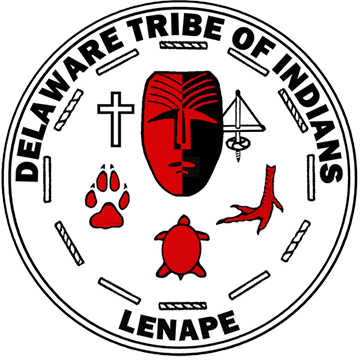
Lenape Talking Dictionary
By English WORD or PHRASE
By Lenape WORD or PHRASE

By English WORD or PHRASE
By Lenape WORD or PHRASE
Alënixsitàm!
Let's
Talk Lenape!
Lesson
5
Building sentences - While one word in Lenape can mean a whole
sentence in English here are a few small words to help create sentences:
 alëmi to
begin
alëmi to
begin
 hàch (some speakers
said hèch) (indicates a question)
hàch (some speakers
said hèch) (indicates a question)
 konaèt maybe
konaèt maybe
 ktite you
think
ktite you
think
 ntite I think
ntite I think
 xu will;
shall (future marker)
xu will;
shall (future marker)
Now
let’s put some short sentences about weather together:
 Alëmi sukëlan It’s
beginning to rain
Alëmi sukëlan It’s
beginning to rain
 Sukëlan hàch? Is
it raining?
Sukëlan hàch? Is
it raining?
 Wine hàch? Is
it snowing?
Wine hàch? Is
it snowing?
 Xu sukëlan It
will rain
Xu sukëlan It
will rain
 Ntite xu sukëlan I
think it will rain
Ntite xu sukëlan I
think it will rain
 Ktite hàch xu sukëlan? Do you think it will rain?
Ktite hàch xu sukëlan? Do you think it will rain?
 Konaèt xu sukëlan Maybe
it will rain
Konaèt xu sukëlan Maybe
it will rain
More sentences can be made by
replacing sukëlan with  kshëlànte (hot day),
kshëlànte (hot day),  kùmhòkòt (cloudy), and most
of the words above. This should give you
a possibility of 90+ sentences.
kùmhòkòt (cloudy), and most
of the words above. This should give you
a possibility of 90+ sentences.
Making Plurals of
Lenape Nouns:
It
is important in any language to learn how to form the plural forms for the
words, and that is what we will discuss at this point for Lenape. Formation of the plurals is fairly regular
and simple in Lenape, and here are the basic rules. We will try to use some of the nouns that we
have already gone over in previous classes.
One
thing to understand in the formation of plurals in Lenape is that you need to
remember which words are Animate and which are Inanimate. As stated in earlier lessons this is usually
pretty straightforward in that anything living is animate, while anything not
living is inanimate. We say “usually”
because as with any language there are exceptions to the rules. An example would be the Lenape word for
bucket, hus, which is borrowed from Dutch and is considered animate, as are
many of the early loanwords.
Animate
Nouns:
1. The regular plural ending for Animate Nouns
is [-àk]. Examples:
Singular Plural English
 pushis
pushis  pushisàk cats
pushisàk cats
 tipas
tipas  tipasàk chickens
tipasàk chickens
 ahas
ahas  ahasàk crows
ahasàk crows
 hus
hus  husàk buckets
husàk buckets
2. For words
ending with –e the Animate Plural is [-yok].
Examples:
 mwekane
mwekane  mwekaneyok dogs
mwekaneyok dogs
 uche
uche  ucheyok flies
ucheyok flies
 chinkwe
chinkwe  chinkweyok bobcats
chinkweyok bobcats
When the plural ending is added to a word which ends in [–w], the [–w] and the [–àk] combine to make [-ok]. Examples:
 xanikw
xanikw  xanikok squirrels
xanikok squirrels
 òpinkw
òpinkw  òpinkok opossums
òpinkok opossums
4. For words ending
with –m the Animate Plural is [-
 chikënëm
chikënëm  chikënëmuk turkeys
chikënëmuk turkeys
 aihàm
aihàm  aihàmuk golden eagles
aihàmuk golden eagles
5. For words ending
with –im (usually the names for fruits and nuts) the word takes no plural. Examples:
 wisahkim
wisahkim  wisahkim grape(s)
wisahkim grape(s)
 wtehim
wtehim  wtehim strawberry(s)
wtehim strawberry(s)
Inanimate Nouns:
1. The regular
plural for Inanimate Nouns is [-a]. Some examples are:
 ahsën
ahsën  ahsëna rocks
ahsëna rocks
 ahpòn
ahpòn  ahpòna bread(s)
ahpòna bread(s)
 lokèns
lokèns  lokènsa dishes
lokènsa dishes
 salàpòn
salàpòn  salàpòna frybread(s)
salàpòna frybread(s)
2. For words
ending with –e the Inanimate Plural is [-yo].
Examples:
 kitahtëne
kitahtëne  kitahtëneyo big mountains
kitahtëneyo big mountains
3. When the plural
ending is added to a word which ends in [–w], the [–w] and the [–a] combine to
make [-o]. For example:
 skikw
skikw  skiko blades of grass
skiko blades of grass
 hàkhàkw
hàkhàkw  hàkhàko bottles
hàkhàko bottles
Some Lenape Loanwords From Dutch:
Some
of the earliest Europeans to meet the Lenape were the Dutch, and some of their
words for things new to the Lenape people were borrowed. Here are some examples:
Lenape Dutch English
 halpànkël half anker barrel
halpànkël half anker barrel
 hèmpës hemd shirt; skirt
hèmpës hemd shirt; skirt
 kënup knoop button
kënup knoop button
 mòkël moker hammer
mòkël moker hammer
 pan’kuk pannekoek pancake
pan’kuk pannekoek pancake
 putël boter butter
putël boter butter
 shëmìt
(or) shmìt smid blacksmith
shëmìt
(or) shmìt smid blacksmith
 shkëp schop playing card
shkëp schop playing card
 shukël suiker sugar
shukël suiker sugar
The Swedes settled
in the southern area of the Lenape homeland ( Lënapehòkink) and at least one
word was borrowed by the Lenape:
Lënapehòkink) and at least one
word was borrowed by the Lenape:
 tipas tippa (word
to call chickens) chicken
tipas tippa (word
to call chickens) chicken